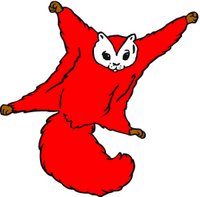
I read an interesting article recently about being an expert. There was a neat graph in the article which showed where experts add value. What immediately struck me was the immediate correlation possible with Snowden's ontologies, so I've fiddled about with the original graph and the result is what you see (hopefully).
I think that Mauboussin is writing about 'technical' experts. I make a distinction between 'technical' experts and 'process' experts. The technical experts know what you think you want to know, the process experts know how to get you to deliver the results you want with what you already know. That's a simplistic definition but it gives the general idea. I'm a process consultant. I hesitate to say a process expert, because I'm always learning.
When you're choosing an expert/consultant, it pays to be pretty clear about what sort of expert you need for the problem you're dealing with. Following both Snowden's ontology and Mauboussin's graph to classify your problem, just about the only time you need a technical expert is when you're dealing with a 'simple' problem or a 'complicated' one. This is the realm of best practice and all you really want to know is how the other guys are doing it, so you aren't falling behind the competition.
I have two caveats here - first,if you aren't already best practice, then you don't have the right people who know their stuff and second, what's best practice for one outfit might not necessarily be best practice for another, even in the same field. Why? Because no two companies are exactly the same.
In any case, whatever a technical expert tries to teach you (and basically that's what they're trying to do) may not be what you need to learn. And the best learning is on-going, self-directed and experiential anyway, so I'm hard pressed to see why you'd hire a technical expert in the 21st century unless you were avoiding responsibility. There's quite a lot of that, though.
I'll always remember a meeting I went to, one of those peer-group mentoring type of things where the group was deciding what the topics of future meetings might include. The attendees seemed to be getting really excited about stuff like 'paperless office' and CRM and as a facilitator I was at least happy that there was some energy in the room. After the meeting one of the group told me that he'd never been so depressed in his life! He said that if he wanted to know about the paperless office, he'd get off his butt and learn all about it himself and there were more valuable ways to be spending the meeting. He was right, of course, and I doubt that he ever spent much on being taught in business - he was too busy learning what he needed to know, not what some consultant thought he needed. Back to the graph - and it's clear that the value of a content expert drops off pretty quickly once we're out of the quadrant of known simple problems and chunkable complicated ones.
With complicated but knowable problems, the real skill comes in getting to see the whole and not just the parts. In a real sense too much specific expertise is the very thing that prevents you from seeing that the whole is more than the sum of the parts. With too much expertise you just can't get out of yourself enough to see what's really going on in the big picture. Some technical knowledge about what your company does is probably useful for a consultant, if only to put you at ease, but it's really the same situation as for a simple problem ... if you don't know your business from a specific content point of view then maybe you're in the wrong business?
Complex problems become more about process. It's wicked (intractable) stuff and the only way through it is by collective sense making devolving into collective responsibility. The consultant might be EXPERT IN THE PROCESSES used to make sense collectively but probably not an expert in getting people to be responsible. If you're looking for an expert to tell you how to run your business then maybe you're in the wrong business, because as I said earlier you should have all the expertise you need right there in the business.


